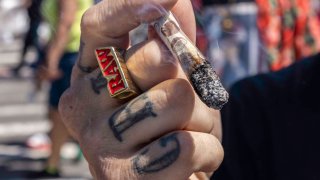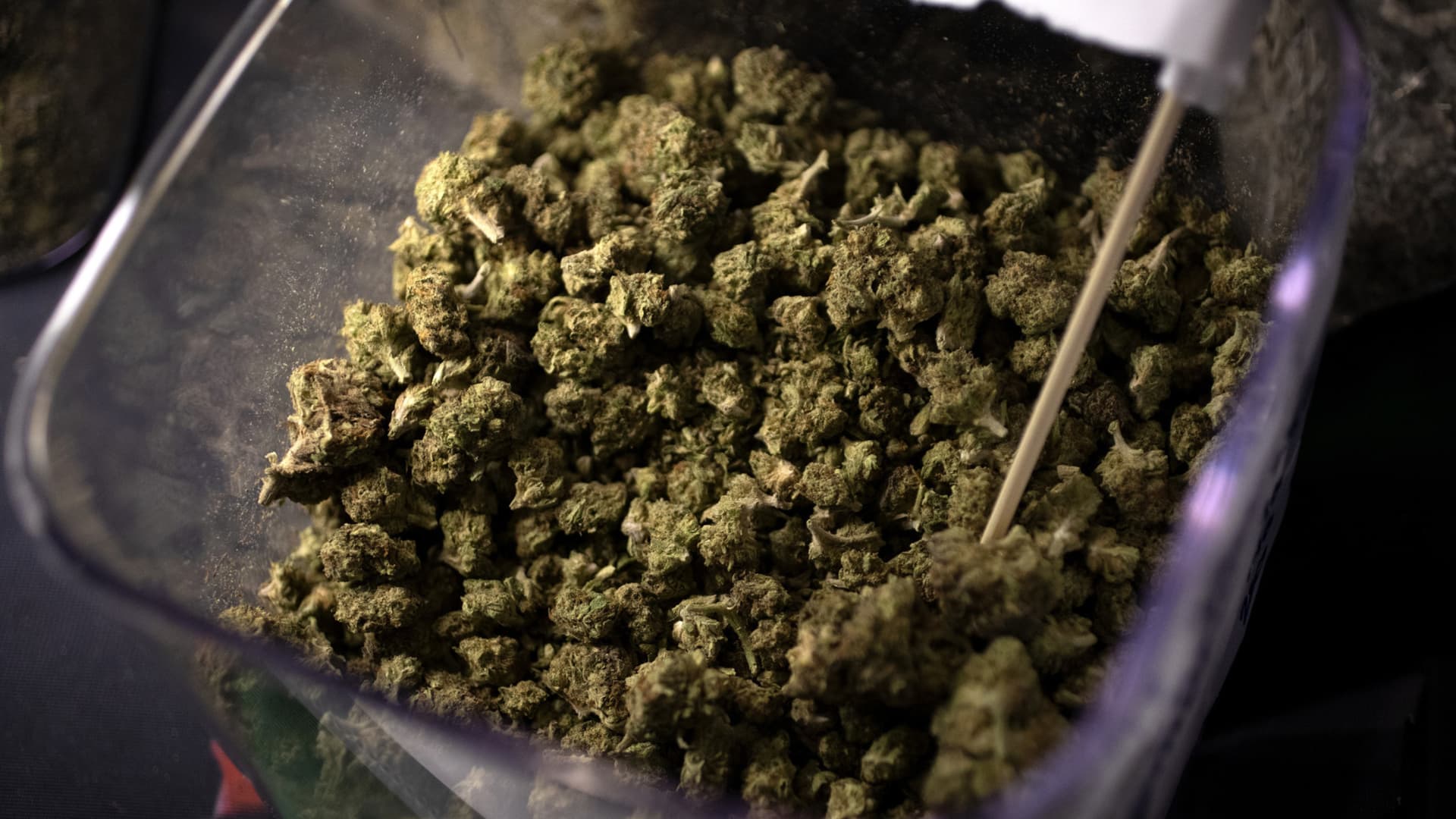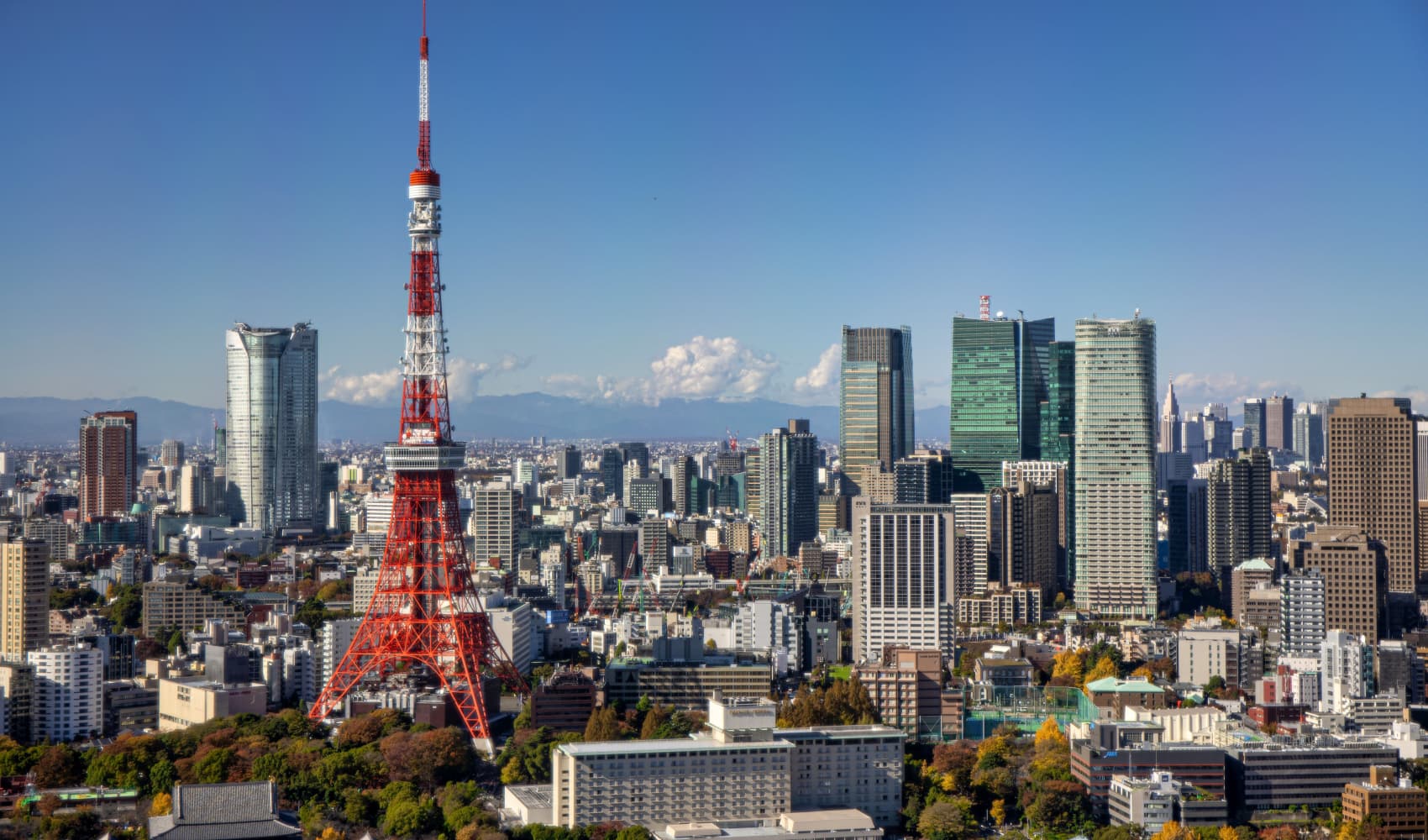
- Legal weed markets across the country are struggling to compete with nontaxed, illicit businesses, where consumers get better deals, despite potential health risks.
- In New York City, crackdowns are beginning to contain the "tens of thousands" illicit businesses contending with the state's newly launched legal market.
- Cannabis company executives are sounding the alarm, especially as critical federal banking reform stalls in Congress.
Thriving, unregulated marijuana businesses across the United States are undercutting legal markets awaiting banking and tax reform.
While it's an issue in states like Colorado, Michigan and Washington, it's a much bigger problem in New York. Unlicensed businesses are "taking a pretty hefty percent of the potential market share," according to Amanda Reiman, a researcher at cannabis intelligence company New Frontier Data. None of the 36 newly licensed dispensaries in New York have even started operating yet.
The licensing program in New York is years behind the state's sophisticated black market. New York doled out its first set of dispensary licenses last month, but recreational marijuana has been legal in the state for nearly two years.
Get Boston local news, weather forecasts, lifestyle and entertainment stories to your inbox. Sign up for NBC Boston’s newsletters.
"These shops are masquerading as safe, legal entities," said Trivette Knowles, a press officer at the New York State Office of Cannabis Management, "but there are currently no licensed sales happening right now in the state of New York."
The problem is particularly cumbersome in New York City, Knowles said. Weed can be bought from brick-and-mortar storefronts, trucks, pop-up shops, bodegas and even courier services that deliver directly to consumers. His office has sent out cease-and-desist letters to some of the unlicensed operators in the state, but some trade groups say there are likely tens of thousands of illegal businesses in the city alone.
"It's almost like whack-a-mole," said Reiman, of New Frontier Data. "If one goes down, another one just pops up."
Money Report
Reiman said her firm doesn't track data on the many illicit businesses that have taken root across the country, but she estimates the national market is worth around $60 billion. The legally regulated industry is just half that, she said.
"When you have dispensaries and distribution systems that pretty much mimic regulated markets, it can be really difficult to get people to move over," Reiman said.
Unregulated markets, she said, also pose serious health risks for consumers. A November study commissioned by the New York Medical Cannabis Industry Association found that after reviewing cannabis products from 20 illicit stores in New York City, about 40% contained harmful contaminants such as E.coli, lead and salmonella.
Besides cease-and-desist letters, New York City has begun cracking down in other ways, too.
In December, Mayor Eric Adams announced the seizure of more than $4 million worth of products being sold illegally. His office also issued over 500 civil and criminal summonses as part of a two-week pilot program with various law enforcement agencies.
"We will not let the economic opportunities that legal cannabis offers be taken for a ride by unlicensed establishments," the mayor said at a news conference.
Banking reform on hold
For the third time this year, the Secure and Fair Enforcement Banking Act, also known as SAFE, hit a wall in Congress after lawmakers excluded it from a $1.7 trillion government funding bill. The measure would have fortified the legal cannabis industry by allowing licensed businesses to access traditional banking services.
Under federal law, banks and credit unions face federal prosecution and penalties if they provide services to legal cannabis businesses since it is still a Schedule I substance, along with heroin and LSD. Schedule I substances, according to the federal Drug Enforcement Administration, are defined as drugs with no currently accepted medical use and a high potential for abuse.
Without access to traditional banks, legal marijuana businesses are forced to operate in a cash-only model, and they can't access loans, capital or even use basic bank accounts.
"This is, sadly, a win for the illegal market, which pays no taxes and has no regulations or testing safeties in place," said Boris Jordan, Curaleaf co-founder and executive chairman.
Jordan said the "entire industry will suffer as a result."
The SAFE Act, which has received some bipartisan support, will have to be reintroduced during next year's congressional session, when Republicans take control of the House.
Executives such as Brady Cobb, CEO of Sunburn Cannabis, said the path forward is "somewhat murky given the new political composition of the chambers."
Sticker shock
Consumers often turn to the black market for weed because they get a better deal there, said cannabis tax lawyer Jason Klimek. He has advised various cannabis companies and currently serves as the chair of the Tax Committee of the New York State Bar Association's Cannabis Law Section.
Klimek authored a study on New York's cannabis taxes that predicts legal cannabis in the state will likely double prices due to high state and federal taxes.
He said the hefty price tag for legal weed in New York will "cause legal adult use of cannabis to be that much more expensive than the illicit market," and leave customers with "sticker shock." He said look no further than California for example, where high taxes and competition from unlicensed businesses are still a problem for its legal industry six years out from its launch.
"California is getting decimated by their illicit market that's thriving because legal products are more expensive, more regulated, and have more taxes," he said. "They just couldn't compete."
Some relief came in July when Gov. Gavin Newsom cut the state's cultivation tax, which offered a lifeline to small cultivators. But high taxes still plague adoption of the regulated market. Marijuana sold at California retailers include a 15% excise tax, a state sales tax of 7.25% and local taxes of up to 15%.

"While generating taxes from the legal side is a crucial component of the current legal model, we also have to balance that with sensible regulations and realistic tax structures," said Lindsay Robinson, executive director of the California Cannabis Industry Association.
In 2021, California generated more than $1.2 billion in revenue from marijuana taxes, according to the Motley Fool. Sixty percent of this revenue goes to anti-drug programs targeting kids, 20% to environmental programs and 20% to public safety.
Robinson fears that with California's current tax structure, legal businesses will be "taxed out of existence."
In New York, legal marijuana is set to include a retail tax of 13% and a tax based on potency levels of tetrahydrocannabinol, or THC, marijuana's psychoactive component.
Klimek said that if New York wants to establish the lucrative, equitable legal market it intended, this tax structure may need reworking so that sticker prices at stores don't turn away customers.
He also said the state should take the step of integrating illicit operators into its new legal system, something New York's Office of Cannabis Management agrees with.
"We recognize that those who have sold in the past more than likely have great entrepreneurial skills that can be utilized in our market," said Knowles, OCM's press officer. "We have always advocated that those who had to sell illicitly in the past have an opportunity to do so in the future."






